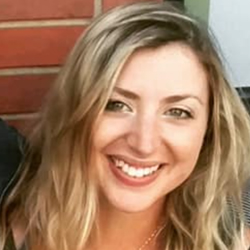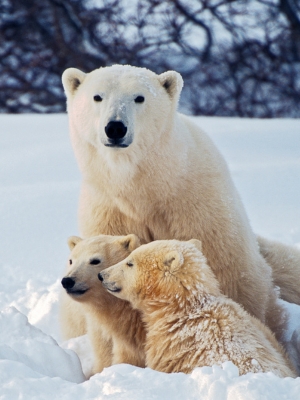Warning: Spoilers below!
The final episode of Chimp Crazy, the newest docuseries directed by Tiger King’s (2020) Eric Goode, aired Sunday, September 8th. Chimp Crazy tells the stories of several chimps kept as pets or entertainers in the United States, including Travis, Buck, and Chance; most of whose stories ended in their tragic deaths after escaping from enclosures, attacking their human caregivers, or suffering a traumatic medical event. Tonka’s story, however, ended differently due to the perseverance of animal rights organization People for the Ethical Treatment of Animals (PETA) and local authorities who fought to give Tonka what he had been deprived of for most of his 32 years of life: the freedom to live as a chimpanzee.
The Story of Tonka the Chimpanzee
The docuseries follows Tonia Haddix, a roadside zoo owner (Sunrise Beach Safari in Missouri) and former owner of Tonka’s previous home, the unaccredited pseudo-sanctuary Missouri Primate Foundation, formerly known as Chimparty. The Missouri Primate Foundation was the primary source of chimpanzees who were sold into the entertainment industry and the exotic pet trade during its years of operation, and housed chimpanzees in deplorable, barren, cramped, and dirty conditions. The facility was shut down following a 2016 lawsuit with PETA on the grounds of Endangered Species Act violations.
Tonka was born in 1991 at Working Wildlife, an exotic animal breeding compound, and was taken from his mother at a young age to appear in films including George of the Jungle, Babe: Pig in the City, and Buddy. Tonka was then moved to the Missouri Primate Foundation when he became too big and strong to continue being exploited in the entertainment industry.
Plans were made for U.S. Marshalls to seize Tonka and six other chimps from the Missouri Primate Foundation in July 2021as part of ongoing legal action but, on the day of the seizure, Tonka was missing. After one year of searching for him, and countless lies from Haddix including that he had been euthanized due to an alleged heart condition, PETA discovered that Haddix had been keeping Tonka in a small enclosure in the basement of her home. Finally, in June 2022, federal marshals seized Tonka from Tonia Haddix’s home after being alerted by the producers of Chimp Crazy. Tonka now lives at the GFAS-accredited Save the Chimps sanctuary in Florida in a group of 17 other chimpanzees. Thankfully for Tonka, help came just in time.
Not Every Pet Chimp’s Story Ends Like Tonka’s
For the other chimps highlighted in the docuseries, help came too late or never at all, and the chimps unfairly paid the ultimate price every time. Chimp Crazy confirms once again that the private ownership of primates should be made federally illegal to protect these endangered animals from needless deaths and the people who own them from trauma and irreparable physical harm.
Chimp Crazy confirms once again that the private ownership of primates should be made federally illegal to protect these endangered animals from needless deaths and the people who own them from trauma and irreparable physical harm.
We highlighted the horrific death of Buck the chimp from Pendleton, Oregon, in our 2022 documentary on the primate pet trade in the U.S., Finding Sanctuary. Buck was a “pet” chimpanzee who was shot in the head and killed in 2021 after he attacked and injured his owner Tamara’s daughter. Although Oregon banned the private possession of chimpanzees and other dangerous wild animals in 2010, the state allowed animals acquired as pets before this law was passed to stay with their owners. Despite Tamara openly violating the conditions of her permit throughout the years, including by allowing Buck to roam freely in her home and on her property, the Oregon Department of Agriculture renewed her permit every year. Tamara also posted content on Facebook confirming that Buck was occasionally on a leash and wearing a shock collar, both of which were not legal, but Oregon authorities did not take enforcement action and instead simply asked her to remove the content. After several years of these confirmed and repeated violations, when the Oregon Department of Agriculture finally issued Tamara a violation, four days later, Buck attacked Tamara’s daughter and was killed by a police officer.
Similarly, Travis was a “pet” chimpanzee who was raised by a woman named Sandra in Stamford, Connecticut. Sandra purchased Travis as an infant from the Missouri Primate Foundation. In 2009, he attacked and mauled Sandra’s friend, Charla Nash. He blinded Charla, severing several body parts and lacerating her face before he was shot and killed by a responding police officer when Sandra begged him to “shoot Travis in the head.” According to PETA, the events that led to the 2009 attack should have prompted earlier intervention from authorities that could have potentially saved Charla Nash and Travis from enduring such horror. In 2003, Travis escaped from Sandra’s car and ran loose for two hours after someone threw trash at him. Following this incident, an animal control officer warned that keeping Travis wasn’t safe—but no action was taken. Shockingly, as shown in Chimp Crazy, even after experiencing such a traumatic near-death incident with Travis nearly killing her friend, in the following years, Sandra sought out Connie Casey, a notorious chimp breeder and circus performer, to visit her. While there, she was allowed dangerous direct contact with chimps.
Putting an End to the Primate Pet Trade in the U.S., Once and For All
As Chimp Crazy has shown once again, we cannot leave dangerous wild animal ownership up to the people in the U.S. As long as the private ownership of primates remains legal, no matter how misinformed, uneducated, or ill prepared people are, they will continue to want to own them—even those who have almost been killed by these animals or witnessed the unpredictable harm they can cause in captivity. Owning a wild animal cannot possibly result in a happy ending for either of the parties involved, no matter how much “love” an owner may have for an animal. The only way to love these animals is to let them be free to live as thousands of years of evolution have programmed them to—as themselves, unrestrained, free to choose, and in the wild.
The Captive Primate Safety Act would help ensure that no more primates enter the private pet trade in the U.S.—please ask your lawmaker to support this crucial legislation now to protect these amazing animals from future harm at the hands of humans.
To learn more about the private primate trade in the U.S. and the monkeys we have rescued at the Born Free USA primate sanctuary, read our 2021 report, Public Danger, Private Pain.

 Dear Reader,
Dear Reader,